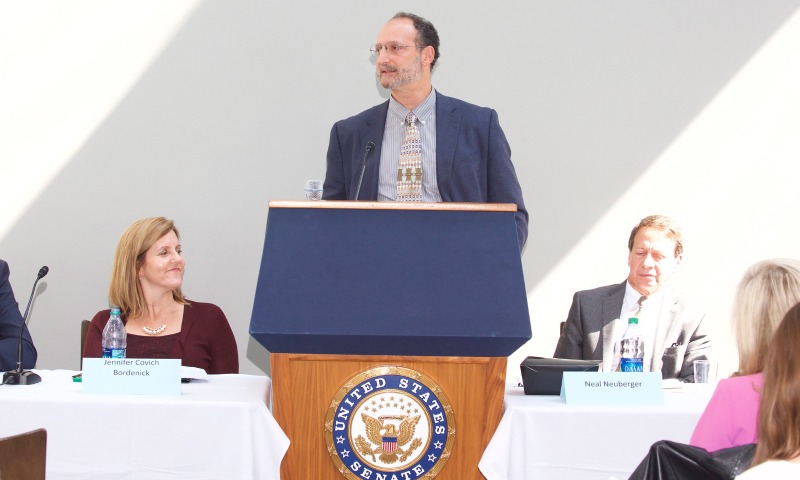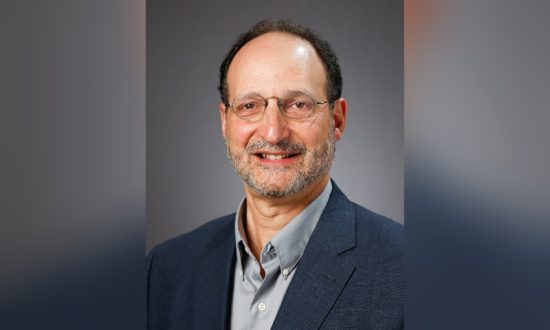Howard Rosen is CEO/ Founder of Nova Insights. Educated as an MBA, he had his 1st career producing film & television, which in 2005 led (in a circuitous route) to having an idea on what became a cloud-based communication platform and company, being CEO/Founder of LifeWIRE, he took it from a solo-preneur to entrepreneur to a multi-national company operating in US & Canada with clients in both the public and private sectors, miliary and civilian. A frequent keynote speaker on innovation, Howard has been awarded 7 utility patents.
Recently, in an exclusive interview with Digital First Magazine, Howard shared his insights on the key challenges faced by healthcare companies when it comes to digital transformation, his career trajectory, mission and purpose of Nova Insights, his favorite quote, pearls of wisdom, and much more. The following excerpts are taken from the interview.
What do you think are the main challenges healthcare companies are facing in terms of digital transformation? And how can they overcome them?
According to a study published by McKesson, digital transformation in healthcare is, at best, 11% successful. And these days, I would suspect the number is even lower with many chasing the “AI” route to show shareholders they are leading edge when not really understanding exactly what today’s AI marketing term really means and what it can really do. More to the point though, the biggest challenge lies in understanding that at the core are people and a myriad of stakeholders who need to be involved in the process. It’s not just a technology play, but an enablement technology for the human side. In other words, in looking at digital transformation, and this is rather obvious, there are two key considerations: 1) technology; and 2) people. In the transformation process there are many points of friction and differing needs of data for each stakeholder (such as patient, caregiver, provider, clinician, nurse etc.), so you need to deal with both simultaneously. But first it’s crucial having clarity on what the objective of the transformation is, what are the measurable key performance indicators to determine the success of the transformation, what are the people workflows being affected; and what technology exists (and proven) to enable the human side of the equation. Fundamentally, the data collected should become actionable information.
In your opinion, what kind of HealthTech gap needs to be addressed today?
Looking at what the HealthTech gap needs to be addressed today, my answer would be tech equity. Not everyone has the same devices, nor access to devices nor communication. So instead of having products for specific devices, solutions should look the other way around to be technology and devices agnostic. For effective use and engagement, instead of telling people/patients how they have to communicate, let them use whatever means is most comfortable to them, and with that, reducing one of the fundamental barriers in digital health. Essentially the mission being providing healthcare to anyone, anywhere, anytime on any device.
Howard, can you tell us about your professional background and areas of interest?
I am presently the CEO (and Founder) of Nova Insights. As to my career path, I was educated as an MBA, had my 1st career producing film & television, which in 2005 led (in a circuitous route) to my investing a cloud based communication platform and company, being CEO/Founder of LifeWIRE, I took it from a solo-preneur to entrepreneur to a multi-national company operating in US & Canada with clients in both the public and private sectors, miliary and civilian and presently holding 7 patents on the technology on which it is based.
Tell us about the mission and vision of Nova Insights. What sets it apart from other market competitors?
Mission Statement = Humanizing Digital Transformation
Description: We practice what we preach by empowering our clients and helping them understand they have customers both outside (patients) and inside their organization (providers, clinicians, nurses, tech etc) so as to help them ensure that the change provides value for everyone in the patient journey.
Purpose: The purpose is to help clients, and ultimately patients, get the most value, engagement, empowerment out of the most relevant digital health tools (including emerging tech such as AI and RPA (Robotic Process Automation) managing routine task allowing providers/nurses to work at the top of their licences, automating process where that is valuable, empowering patients, all to be provided with the information they need, when they need it.

Can you please give us your favorite “Life Lesson Quote”? Can you share how that was relevant to you in your life?
My favorite “Life Lesson Quote” s rather long but says so much, it is from Theodore Roosevelt which to me says everything about being an entrepreneur in digital health:
“It is not the critic who counts; not the man who points out how the strong man stumbles, or where the doer of deeds could have done them better. The credit belongs to the man who is actually in the arena, whose face is marred by dust and sweat and blood; who strives valiantly; who errs, who comes short again and again, because there is no effort without error and shortcoming; but who does actually strive to do the deeds; who knows great enthusiasms, the great devotions; who spends himself in a worthy cause; who at the best knows in the end the triumph of high achievement, and who at the worst, if he fails, at least fails while daring greatly, so that his place shall never be with those cold and timid souls who neither know victory nor defeat.”
You were recently honoured with the title, ‘2023 Transformational Leader in Healthcare’. Which three-character traits do you think were most instrumental to your success?
It’s hard to know specifically the determination and basis for the editorial Board, but I suspect that three of the factors would be: 1) Having come from outside the Healthcare industry, specifically as a film producer, I brought a unique perspective to engagement and technology; 2) bone headed tenacity, where I was clear on the vision and continue to take in lots of data to inform, but maintain that vision; 3) curiosity where I am always reading and looking at and for new insights not just in health tech but across industries, as exemplified by my recent series of articles in Forbes on AI and RPA (Robotic Process Automation).
Based on your experience and success, can you please share “Five things you need to know to successfully create technology that can make a positive social impact”?
Interesting question and I guess it’s somewhere in this interview, but to try to enumerate, in no particular order:
- Everybody is an “expert”, but very few who actually know what they are talking about.
- Technology can’t have social impact unless you understand that technology is an enabler, not a solution.
- People are at the heart of every solution, and you need to recognize their needs in order to engage them and address those needs before you even think of technology.
- It’s great to have a idea, but speak with the users of the service or technology to make sure they see the need as you. You need to discern need from want, and then where is it in their priority of needs, not yours.
- Don’t take “no” for an answer until you have looked at all the above. Sometimes the more vehement the “no” the more you may be onto something.
None of us are able to achieve success without some help along the way. Is there a particular person who you are grateful towards who helped get you to where you are?
Lots of inspiration certainly but specifically who had faith in a film producer that he (being I) had a perspective and worthy idea in which they spent time in opening their respective networks and insights in those very early days? Absolutely,
- Vince Kuraitis
- Jay Srini
- Neal Neuberger
Is there a person in the world (past or present) with whom you would like to have a private breakfast or lunch, and why?
I have always wanted to sit down with the composer George Gershwin and ask him about many of his compositions, but particularly “Rhapsody in Blue”.
What’s the one thing that gets you excited about the current healthcare transformation?
Though not very public until recently, it has been around for a while, the advent generative AI and related AI tools. We are in very early days with great opportunities and many challenges. But if managed properly, it could be a generational change to patient engagement, support for providers/clinicians, and new insights for precision medicine.
What advice would you give to healthcare entrepreneurs/founders/business leaders?
Stay true to your vision and surround yourself with advisors who bring a myriad of experience and insights, you don’t have to agree but you need to incorporate those insights as representing perspective from the industry.






